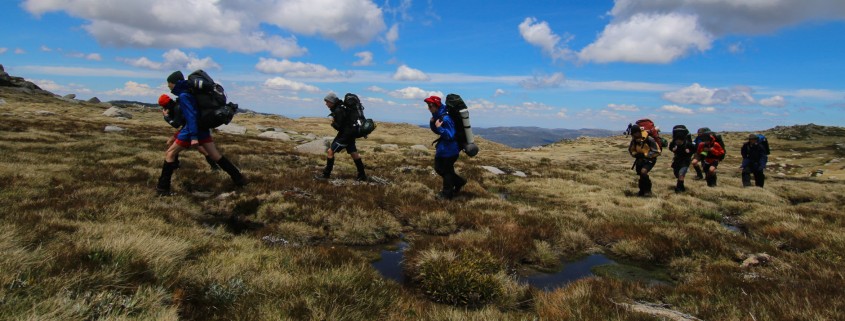Teaching Guidelines
These guidelines for schools and tertiary institutions are OEA’s recommended standards for professional outdoor education teachers.
Please note:
- It is recognised that there are many outstanding teachers of Outdoor Education who do not meet these guidelines
- It is not the intention of Outdoor Education Australia to dissuade those teachers that do not meet these guidelines from pursuing the teaching of Outdoor Education
- These guidelines are not intended for those teachers that wish to use outdoor education methodology (e.g. field trips, site visits, experiential learning) within their subject area
- Professional development for the above teachers may be useful to improve practice.
Teaching Senior Secondary Outdoor Education or Outdoor and Environmental Studies:
- A minimum of one year equivalent of tertiary study in Outdoor Education, plus studies in Outdoor Education pedagogy, and satisfactory completion of a teaching practicum.
Teaching Middle and Primary School Outdoor Education:
- A minimum of six months of tertiary study in Outdoor Education, plus studies in Outdoor Education pedagogy and satisfactory completion of a teaching practicum.
This may take the form of:
- An undergraduate degree in Outdoor Education. This is highly desirable
- An undergraduate degree in another discipline (such as Psychology, Physical Education, Science, Arts, Aboriginal Studies, History, etc), but with a major field of study of Outdoor Education within the program
- A qualified teacher that holds a VET based qualification in Outdoor Recreation at a minimum of Certificate IV level, supplemented by additional studies in Outdoor Education philosophy and pedagogy, and satisfactory completion of a teaching practicum.
One year of study in Outdoor Education should include:
1. Discipline study
Discipline study:
- The educational potential of outdoor experience for personal and group development, sustainability and social justice
- Human interaction with natural environment including philosophical approaches to adventure and nature, environmental ethics, sense of place study, natural history and Indigenous relationships with the environment
- Outdoor activity knowledge
- Ecological literacy
- Safety management
2. Skill areas
Skill areas to include:
- Outdoor Leadership
- Camping and camp management
- Activity skills to lead in easy environments in 2 or more outdoor activities. Bushwalking and Canoeing/Kayaking are the most popular activities in schools and these are highly recommended. Additional depth of skills to lead groups in semi-remote environments desirable. Additional activity skills also desirable to support a broad program
- Organisation
- Risk management planning.
3. Outdoor Education Pedagogy
Outdoor Education Pedagogy
- Environmental interpretation
- Experiential education facilitation
- Outdoor Education programming and sequencing
- Structuring learning episodes including provision of feedback, assessment and reflection.
4. Teaching Practicum
Teaching Practicum
- At a recognised educational institution
- Mentored by an experienced and qualified Outdoor Education Teacher
- 80 hours for early childhood, primary and middle school
- 120 hours for senior secondary school.




